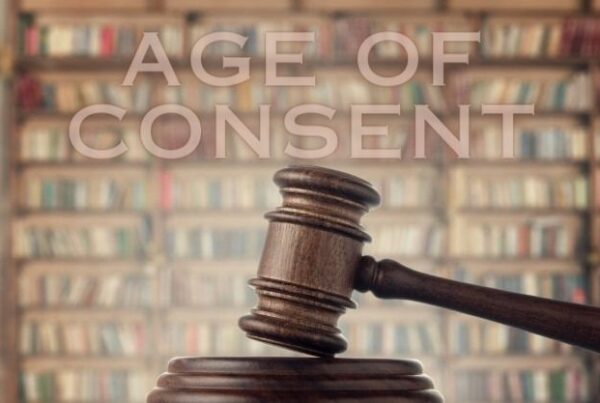There are various types of entities through which a business can be conducted such as setting up of a proprietorship, partnership, company or a limited liability partnership. While there maybe more flexibility in conducting the business in case of a proprietorship and partnership, the liabilities in these entities are in the nature of unlimited liabilities. Further, the liabilities are also joint and several in case of a Partnership. In case of a company or a limited liability partnership, the main advantage is that the liability of the shareholders/ partners, as the case maybe, is a limited liability. In this article, we have evaluated the differences between a Partnership and a Limited Liability Partnership (‘LLP’)
Partnership
- Partnerships are governed by the Partnership Act, 1932 (‘the Partnership Act’). The section 4 of the Partnership Act defines a partnership as the ‘relation between persons who have agreed to share the profits of a business carried on by all or any of them acting for all’. Hence, it can be seen that the essential ingredients for a Partnership are that the persons are coming together for running a business and the profits arising from such business are being shared by them.
- A partnership arises from a contract and not from a status such as member of a Hindu Undivided Family carrying on a business. Hence, it is essential that a partnership agreement is entered into for creation of a partnership. A partnership does not have a separate legal existence in the eyes of law.
- Partners in a partnership can be corporates as well as individuals.
- Partners are not required to designate any person as a ‘Designated Partner’ of the firm.
- Partnership Act specifically provides for agreements in restrain of trade wherein the partner can be barred from conducting any other business other than that of the firm while he is a partner and after termination of partnership, he is barred from conducting business for a specific time period and with respect to a particular geographical area.
- A Partner is treated as agent of the firm for the purposes of the business of the firm.
- With respect to liability of a partner, he is liable jointly with all the other partners and also severally liable for acts of the firm which are done while he is a partner. Hence, a partner is jointly and severally liable for the wrongful acts or omissions of other partners which causes loss or damage to third persons, if such acts are done in the ordinary course of business. The partners are also jointly and severally liable where a partner receives and misapplies the money or property of a third person while acting within his scope of his apparently.
- Dissolution of a partnership firm is possible by consent of all the partners or in accordance with a contract between the partners. A firm can also be dissolved if its partners are adjudicated as being insolvent or by happening of any event which makes it unlawful for the business of the firm to be carried on or for the partners to carry on the business in partnership. Subject to a contract, a partnership may also be dissolved on account of death of a partner. In certain circumstances, at the suit of a partner, the Court may dissolve a firm on certain prescribed grounds.
- While the registration of firm is not mandatory, it is necessary in order for the partnership firm to be able to file any proceedings in a Court of law.
- The Partnership Act does not require maintenance of any books of accounts by the firm nor filing of any annual returns.
LLP
- A LLP is governed by the provisions of the Limited Liability Partnership Act, 2008 (‘the LLP Act’).
- A LLP is incorporated by two or more persons who are associated for carrying on a lawful business with a view to earn profits who subscribe their names to an incorporation document and the incorporation document is filed with the Registrar alongwith a statement in a prescribed format made by an advocate/company secretary/chartered accountant/cost accountant. The Registrar shall thereafter register the incorporation document and give a certificate that the LLP is incorporated. It is mandatory for the LLP to use the suffix Limited Liability Partnership or LLP in its name. A LLP is also required to have a registered office under the provisions of the Act. Once LLP is registered, it is capable of suing and being sued, holding or disposing property etc.
- A LLP has a separate legal status from its partners. It is a body corporate formed and incorporated under the provisions of the LLP Act. Hence, a LLP shall have perpetual succession and any change in the partners of the LLP does not affect the existence or rights and liabilities of the LLP.
- The LLP Act specifically provides that the provisions of the Partnership Act shall not be applicable to a LLP.
- The Partners in the LLP can be individuals as well as body corporates. Body Corporate has been defined to mean a company as defined in the Companies Act as well as a LLP incorporate in India or abroad as well a company incorporated outside India. However, a cooperative society registered under any law for the time being in force cannot be a partner in a LLP.
- A LLP is required to have atleast two partners. It is mandatory for the LLP to have two ‘Designated Partners’ who shall be required to ensure compliance by the LLP of the provisions of the LLP Act such as filing of any document, return, statement etc.
- The mutual rights and duties of the partners with respect to each other and with respect to the LLP shall be governed by a limited liability partnership agreement. In absence of such agreement, the rights and duties amongst the partners shall be governed by the provisions of the LLP Act.
- Partner is treated as agent of the LLP but not of the other partners.
- There are no specific restrictions with respect to non- compete obligations of the partner under the LLP Act.
- The liability of a partner of a LLP is limited liability. Hence a partner is not personally liable for an obligation of a LLP. As per the provisions of the LLP Act, such obligation shall be solely the obligation of the LLP. A partner of a LLP is also not personally liable for the wrongful act or omission of any other partner of the LLP. This is the significant distinction between the liability of a partner of a firm and of a LLP. Hence, this aspect makes a partnership in a LLP a preferred mode of conducting business as against conducting through a partnership. However, an exception to this limited liability is when the LLP or its partners carry out an act with an intent to defraud persons. In such an event, the liability of the partner who acted with the intent to act for fraudulent purpose shall be unlimited and the LLP shall be liable to the same extent as the partner.
- The LLP is also required to maintain proper books of account relating to its affairs and shall also be required to file a statement of account and solvency.
- A LLP maybe wound up either voluntarily or by Tribunal and thereafter dissolved.
Hence, while setting up a business as a partnership or a LLP, the aforesaid factors should be taken into consideration.




